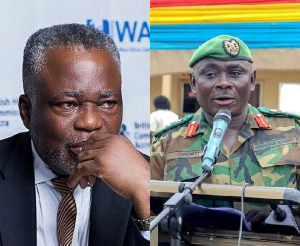IN May 2006, in a meeting room in Bangkok, a convicted Chinese fixer boasted of how he had rigged soccer matches around the world, including at the Olympic Games. He claimed to have arranged Japan's 1-0 win over Ghana at the Athens Games.
"Do you think Japan could ever beat Ghana?" he said. "You have to be kidding. Ghana has a good team. The whole game cost $US550,000 to fix."
Declan Hill, the author and researcher listening to the claims, was sceptical that Ghana's dismal performance against Japan in the 2004 Olympics could have been induced by the betting syndicates.
He subsequently spoke to players in the Ghana team about the allegations, including Yussif Chibsah, captain of the team in the Japan game, and Stephen Appiah, a Ghanaian midfielder who formerly played for Italian club Juventus.
To his surprise, both men admitted they had been approached by fixers at the Athens Olympics. Chibsah said: "They approached us. I think it was the game against Paraguay and then the game against Japan.
"They tried and tried, but we did not give in."
Appiah admitted in a taped interview that he had been approached, but said he refused to accept money to lose a game.
Soccer's governing body, FIFA, yesterday declined to say whether it was investigating the allegations, but it provided an insight into how fixers who have blighted so many sports are targeting the Olympics.
British Olympics Minister Hugh Robertson told The Sunday Times he considered match-fixing to be the biggest threat to the reputation of the Olympics.
"Governments around the world need to put the necessary laws on their statute book that make this illegal," he said.
Robertson promised the biggest ever operation to thwart match-fixing attempts at this year's Games. A dedicated unit will monitor suspicious betting patterns and athletes will be given a hotline to report approaches from fixers.
His comments underline warnings by International Olympic Committee president Jacques Rogge, who said match-rigging was a bigger threat to the Olympic movement than drugs.
"Doping affects one individual athlete," he said last year. "But the impact of match-fixing affects the whole competition. It is much bigger."
Some sporting federations have been sluggish in confronting the problem. FIFA only set up a special unit to combat match-fixing last year as investigations were mounted in more than 12 countries into match-fixing and bribery rings.
In a trial in Bochum, Germany, that concluded last year, investigators said they suspected 300 matches in 20 countries had been manipulated, including Champions League and Europa League games.
Hill, author of The Fix, a book on soccer and organised crime, testified to the IOC last year on match-fixing.
He said at the weekend: "There is a gang of criminals that goes around trying to fix matches at every major football tournament, and that includes the Olympics. They were in Athens and they were in Beijing.
"It would be naive to think they keep turning up (to the Olympics) and have never succeeded."
Tennis authorities are also alarmed at the risk of matches being deliberately lost because of betting scams.
A list of people suspected of involvement in corruption on the fringes of the game has been circulated among tennis officials. Professional tennis now has its own anti-corruption unit.
Handball officials who have refereed Olympic finals are also alleged to have been bribed in other tournaments.
In the last Olympics, qualifying matches involving the Kuwait handball team were replayed after allegations of fixing, although it is not believed to have been connected to betting. Kuwait denied fixing. Hockey has also faced match-rigging allegations, but none have been proved.
Robertson said illegal gambling syndicates in India and Asia were largely to blame for the corrupting influence on sport.
These countries should legalise gambling to ensure that suspect activity could be closely monitored by police and regulators, he said. Gamblers used to simply bet on who would win or lose, but now an array of bets are on offer.
In a soccer match, bookmakers offer odds on the number of corners conceded and the number of red or yellow cards handed out.
Huge bets on a specific event quickly arouse suspicion and are reported to the Gambling Commission, Britain's gambling regulator. Bets placed illegally cannot be monitored.
The operation against fixers will be spearheaded by a joint intelligence unit comprising IOC officials and the specialist betting intelligence unit, a division of Britain's Gambling Commission.
This unit will be supported by the Metropolitan Police and Britain's Serious Organised Crime Agency, which will enlist the help of Interpol to track suspects.
Nick Tofiluk, head of the betting intelligence unit, said: "The main sources of information will be from betting operators themselves, both nationally and internationally."
Sporting federations will also closely scrutinise the actions of competitors and alert investigators to any suspicions.
Athletes will sign an oath before competing in London that includes a clause stating they will not bet on the Games.
The Sunday Times
Soccer News of Sunday, 1 January 2012
Source: JON UNGOED-THOMAS AND KATE MANSEY From: The Australian
















